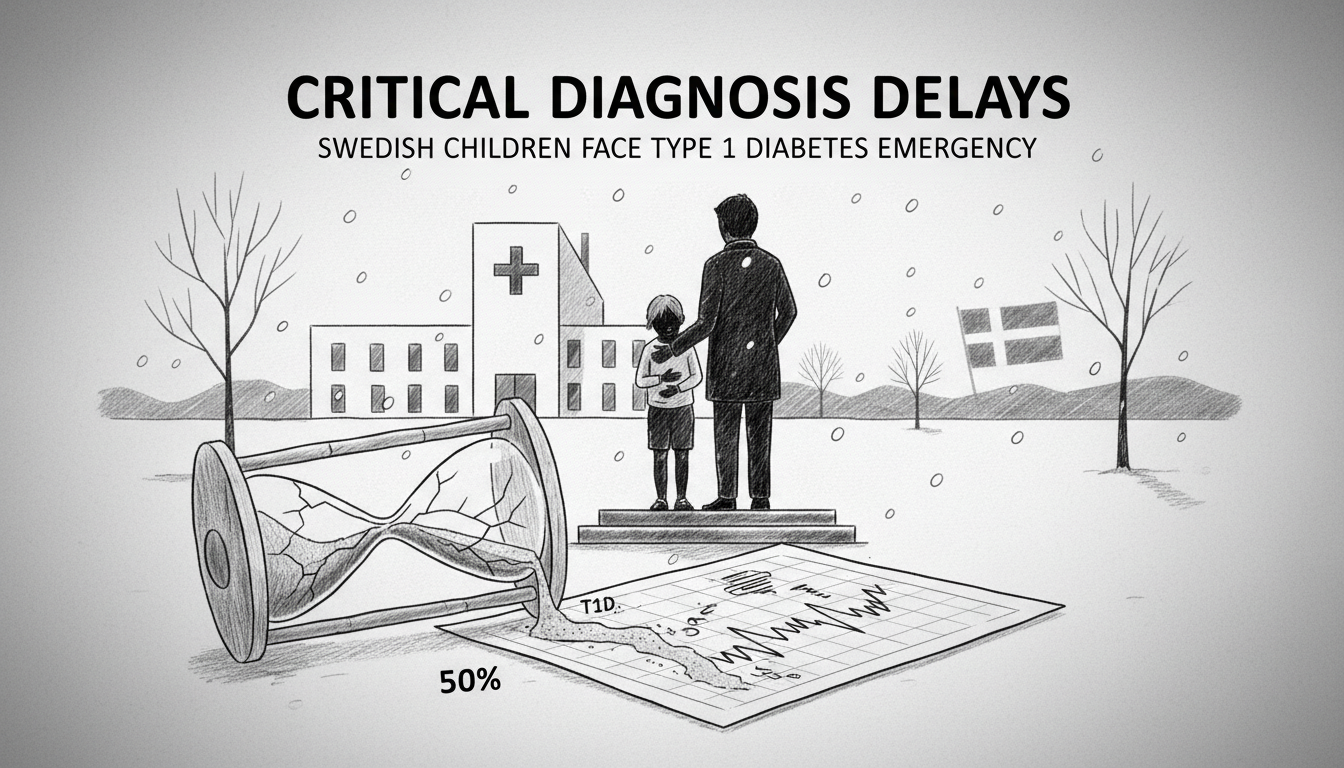Many children with type 1 diabetes receive late diagnoses, with some cases only identified during emergency situations. Medical professionals and patient organizations now advocate for screening programs to prevent life-threatening complications.
Type 1 diabetes differs fundamentally from type 2 diabetes as an autoimmune condition where the body's immune system destroys insulin-producing cells. This destruction forces affected individuals to depend on external insulin administration for survival.
Young children present particular challenges for early detection. Recent data from Sweden's National Diabetes Register reveals approximately 27 percent of pediatric cases are discovered only during acute medical crises. The situation appears most critical among children under two years old, where the delayed diagnosis rate reaches 55 percent. This represents a sharp increase over recent years.
These emergency situations typically involve diabetic ketoacidosis, a dangerous condition where insulin deficiency causes blood to become acidic. Dr. Peter Adolfsson, a diabetes specialist from Skåne Region, explains the severity. "This becomes life-threatening and may require intensive care. But it often doesn't need to reach that point if healthcare providers perform simple, inexpensive glucose tests or urine analysis."
Type 1 diabetes develops gradually with recognizable symptoms that both healthcare providers and parents can monitor. Increased thirst, fatigue, weight loss, and abdominal pain serve as primary indicators. Dr. Karin Åkesson, pediatrician and associate professor at Linköping University, notes the challenges with younger patients. "Detection proves difficult especially with small children. Heavy diapers or previously toilet-trained children beginning to wet themselves again could indicate developing diabetes."
The Barndiabetesfonden (Child Diabetes Foundation) plans to highlight this issue during World Diabetes Day on November 14. They aim to reduce risks for young children through increased awareness and potential screening initiatives.
While type 1 diabetes rates have remained relatively stable in recent years, type 2 diabetes shows alarming growth among young adults. A report from the Swedish Diabetes Association indicates a 35 percent increase in type 2 cases among 19-39 year olds between 2020 and 2024. Dr. Adolfsson attributes this trend to multiple factors. "We're slowly approaching American-style health patterns with population weight increases and reduced physical activity. This elevates type 2 diabetes risks. We can prevent this through societal measures like sugar taxes that help people make better food and drink choices. Daily school physical education also plays a crucial role."
Sweden's healthcare system faces mounting pressure as diabetes patterns evolve. The country records approximately 900 new type 1 diabetes diagnoses annually in children under 18. Meanwhile, type 2 diabetes affects around 400,000 Swedes, representing about 90 percent of all diabetes cases.
The diagnosis delay problem reflects broader challenges in preventive pediatric care. Sweden's decentralized healthcare system, organized through 21 regional councils, creates variation in screening practices and diagnostic protocols. This structural characteristic may contribute to the inconsistent detection rates across different age groups and regions.
International comparisons show Sweden performs moderately in early diabetes detection among European nations. Countries with routine school health screenings typically demonstrate better early diagnosis rates. The current situation suggests Sweden might benefit from standardized national screening protocols for childhood diabetes.
Medical experts emphasize that earlier detection not only prevents life-threatening complications but also reduces long-term healthcare costs. Diabetic ketoacidosis treatment requires extensive hospital resources compared to simple outpatient management of newly diagnosed diabetes.
The growing type 2 diabetes problem among young adults presents additional challenges for Sweden's public health system. This trend indicates that lifestyle-related health issues are affecting younger populations than previously observed, potentially signaling future increases in diabetes-related complications across multiple age groups.

